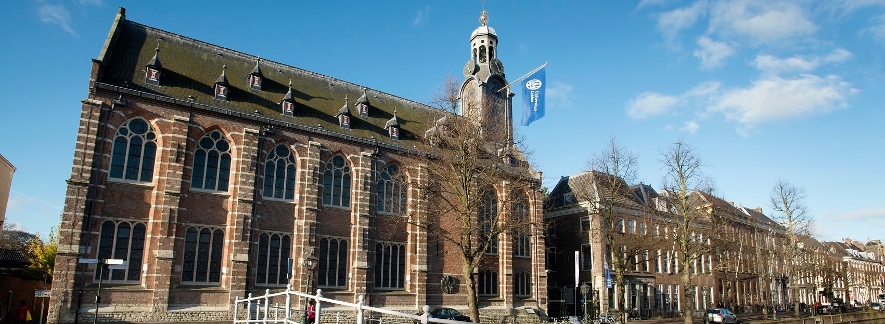“There to pursue their Studies of Latin and Greek”
John Adams wasted no time in reacting to Benjamin Waterhouse’s 13 Dec 1780 letter about educational opportunities in Leyden, quoted yesterday.
Five days later, the American diplomat packed his eldest sons, John Quincy and Charles, off to that Dutch university town with their occasional tutor, John Thaxter.
Even before knowing that they had settled in, Adams wrote home to his wife Abigail in Braintree:
This letter is our first sign that part of the pedagogy, and part of the problem, at that school was corporal punishment. Or, probably more accurately, even more corporal punishment than a New England family like the Adamses thought was just.
As Adams wrote, he and his wife were staying on friendly terms with James Lovell, a former usher at Boston’s South Latin School whose method of beating boys on the hand with his ruler was legendary. But whatever happened in Amsterdam was supposedly worse.
Another implication of this letter is that John Adams had not told Abigail anything about John Quincy’s problems at the Latin School. She may never have learned about those difficult fifty days and how her eldest son reportedly misbehaved to force his removal.
Fortunately, John Quincy liked the new arrangements in Leyden. The day after the party arrived, he told his father, “we went to hear a Medicinal lecture by Professor Horn, we saw several experiments there. In the afternoon we went to Hear a Law lecture by Professor Pessel.” The next day he reported:
In addition, in January 1781 the university registered Thaxter, John Quincy, and Charles as students, the first two to study law and the youngest to study letters. Thaxter reported: “Ils travaillent avec beaucoup d’ardeur, et ils avancent très bien.” They work with lots of ardor and they progress very well.
Thus ended the only significant blot on John Quincy Adams’s scholastic career.
Five days later, the American diplomat packed his eldest sons, John Quincy and Charles, off to that Dutch university town with their occasional tutor, John Thaxter.
Even before knowing that they had settled in, Adams wrote home to his wife Abigail in Braintree:
My dearest PortiaThe last paragraph looks like a comment on the Latin School on the Singel, where John Quincy had had such a poor experience in September and October.
I have this morning sent Mr. Thaxter, with my two Sons to Leyden, there to take up their Residence for some time, and there to pursue their Studies of Latin and Greek under the excellent Masters, and there to attend Lectures of the celebrated Professors in that University. It is much cheaper there than here: the Air is infinitely purer; and the Company and Conversation is better.
It is perhaps as learned an University as any in Europe.
I should not wish to have Children, educated in the common Schools in this Country, where a littleness of Soul is notorious. The Masters are mean Spirited Writches, pinching, kicking, and boxing the Children, upon every Turn.
This letter is our first sign that part of the pedagogy, and part of the problem, at that school was corporal punishment. Or, probably more accurately, even more corporal punishment than a New England family like the Adamses thought was just.
As Adams wrote, he and his wife were staying on friendly terms with James Lovell, a former usher at Boston’s South Latin School whose method of beating boys on the hand with his ruler was legendary. But whatever happened in Amsterdam was supposedly worse.
Another implication of this letter is that John Adams had not told Abigail anything about John Quincy’s problems at the Latin School. She may never have learned about those difficult fifty days and how her eldest son reportedly misbehaved to force his removal.
Fortunately, John Quincy liked the new arrangements in Leyden. The day after the party arrived, he told his father, “we went to hear a Medicinal lecture by Professor Horn, we saw several experiments there. In the afternoon we went to Hear a Law lecture by Professor Pessel.” The next day he reported:
I have this day seen the master who is to teach us greek and Latin. He is to come to us twice a day; from twelve to one oclock and from five to six in the afternoon, so that I shall be two hours occupied with our master an hour at each lecture is two more and the rest of my time I shall be writing from Homer, the Greek testament, of Grammar, and learning lessons for our Master.Thaxter engaged this man, an usher at the town’s high school, for thirty Guilders per month. The lessons were in French, as the boys had prepared for.
In addition, in January 1781 the university registered Thaxter, John Quincy, and Charles as students, the first two to study law and the youngest to study letters. Thaxter reported: “Ils travaillent avec beaucoup d’ardeur, et ils avancent très bien.” They work with lots of ardor and they progress very well.
Thus ended the only significant blot on John Quincy Adams’s scholastic career.


No comments:
Post a Comment